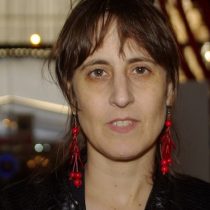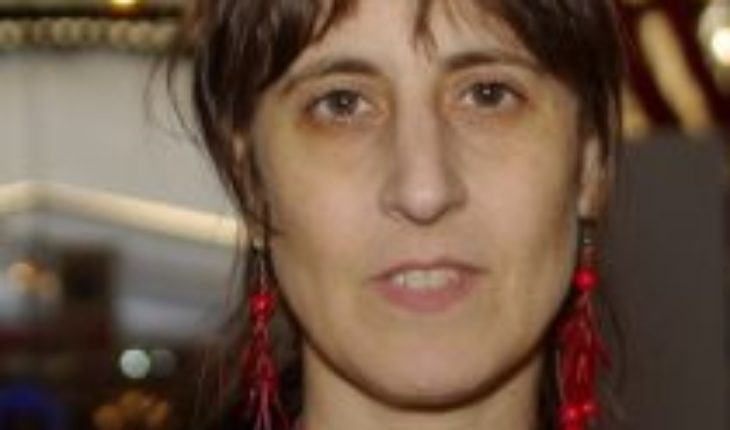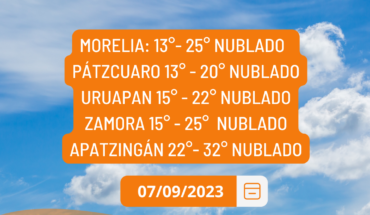
The writer Alejandra Costamagna is the last winner of the Athena Award for her work The System of Touch. The prize has been presented since 1929 by the magazine of the same name, its first winner was Manuel Rojas and to date 53 awards have been awarded to literary works and 22 to scientific works. Alejandra Costamagna is one of six women who has received this recognition.
By email, the author comments that the Athena Prize finds her living the confinement “with her head in a thousand parts and none”.
“There is a noise in wanting to keep writing and producing as if nothing. Keep writing in my little corner as the world is out. Today we have a current overdose that overwhelms and that, at least, I am incompatible with a more rested writing, that dialogues with the past and allows us to enter gray areas”, he says.
On the prize, he points out that receiving it brought him joy in these “misty days”. “I am happy for its tradition and for the one who bestows it. Concepción, moreover, is a cultural pole that I especially appreciate. I am happy to share space with writers I admire as much, such as Manuel Rojas, Marta Brunet, Guadalupe Santa Cruz or Germán Marín, to mention just a dagger. And I’m very happy, especially, to help match the court a little bit in terms of gender. To think that since its inception, in 1929, the Prize has been awarded to 73 males and only to five women (six now), it speaks of the gender inequity with which we historically carry. Discrimination structures are reproduced in different areas, which unfortunately do not exclude culture. That’s why it encourages the test that, little by little, women’s voices are being heard and recognized,” she says.
Memory is a fundamental element in this novel, also intimacy and loneliness. Emotions and situations that have been around us since last October, first with the so-called social outburst and now with the health crisis. In that sense, the system of touch appears as a very current novel, inserted into the reality that we live today.
“In The System of Touch there is a kind of questioning of normality, on several planes. Starting from what we usually conceive as a ‘novel’, since the book incorporates files, documents, manuals, residues, remains and traces of a story that is intervened towards fiction. And then because of the characters, who are subjects who do not respond to a duty to be either to the social, filial, productive or patriarchal mandates that weigh on them. They are uprooted beings, they are the ‘others’, the rare, the different, the non-belong, those who leave the line of uniformed righteousness and are besseed on different planes”, explains the author.
Thus, he recognizes that some resonance has that with what we live during the revolt and what we are living with today, “in the sense of questioning a certain normality that is to be imposed. A normality that excludes, precarizes and gives no room for dissent. The revolt reminded us that the past will always be there, throwing sparks into our day like a jolt. From curfew to curfew. And the pandemic, which seems to make a hiatus to leave us in a frozen present in the “in-door”, comes to confirm to us however that intimacy always has a correlation with public space. I am thinking of the situation of many migrants living in overcrowded conditions, who must take to the streets because they depend on the day to day to survive and who are in charge of many of the work that allows the confinement of others. So even the ‘normality’ of care is an illusion. Or, rather, a privilege.”
Looks like the flight wasn’t coming.
And in this scenario of confinement and perplexities, Alejandra Costamagna confronts literature also without certainties. “The universe from which we could look at anything we write today has turned. And, well, there’s also the almost zero ability to concentrate. Barely, if not, some babbling in the form of notes, which I still take here and there in loose papers. I’ve always written waste, on little papers, on napkins, in notebooks, until the matter starts to fly. But now it looks like the flight wasn’t coming. Or that I didn’t have the remotest idea of what flight I could take. Just as I have no idea what flight this thing we’re living through can take.”
Therefore, in his view, the word which best sums up the look to the future is “uncertainty”. “We won’t be the same when this is over, no doubt, but I don’t know who we’re going to be. I want to think that this will make us more aware of the huge crack that holds this model, which would make sense to continue the revolt even more forcefully. If then it would not be possible to return to that failed normality that had prompted us to take to the streets, now it will now be put to trial. Because what is at stake, precisely, is the precariousness of those of us who work and do not have social security. From informal workers, from prisoners who are treated as waste, from people living on the street, from the elderly who receive misery pensions, from migrants. From a system that commodizes everything, to the same disease,” he says.
At times, he adds, he sees the future in the hope of shaking. “Other times pessimism earns me and nullifies all of the above, and I can’t make sense of the clouds. Anyway, it’s vertigo to think that this thing we’re living in right now is memory and has infinite branches of microhistory, beyond what we see in the press or on social media. These memories are invaluable,” he concludes.
About the Athena Award
The Vice-Chancellor of Linkage with the Middle Of the University of Concepción, Dr. Claudia Muñoz Tobar, stresses the importance of this award and that which has been maintained in the midst of this health crisis. “The Athena Prize, one of the most important in the field of letters at the national level, has an extensive tradition, almost uninterrupted, since only twice has it not been awarded. In the hands of the direction of the magazine Athena, it alternately distinguishes a scientific work and a literary work, and the trajectory of the authors and authors whose works have been presented is recognized. Alejandra Costamagna now joins this distinguished list.”
For her part, the director of the magazine Atenea, Cecilia Rubio, complements that the deliberation of the jury of the Athena Prize (composed of UdeC and external experts) was held remotely and that the award must also be presented in this way.
“However, we have invited Alejandra Costamagna for a symbolic ceremony that we hope to do at the 2021 Summer School. Since last year, we have set out to give the Athena Award ceremony not only a protocol character, but also an academic character, so we will do an act that contemplates a lecture or essayal speech by the writer, where she can share her ideas on narrative creation,” she says.




![translated from Spanish: [VIDEO] Christian Sanchez broke into his TVN farewell translated from Spanish: [VIDEO] Christian Sanchez broke into his TVN farewell](https://ananoticias.com/wp-content/uploads/2019/12/translated-from-Spanish-VIDEO-Christian-Sanchez-broke-into-his-TVN-370x215.jpg)